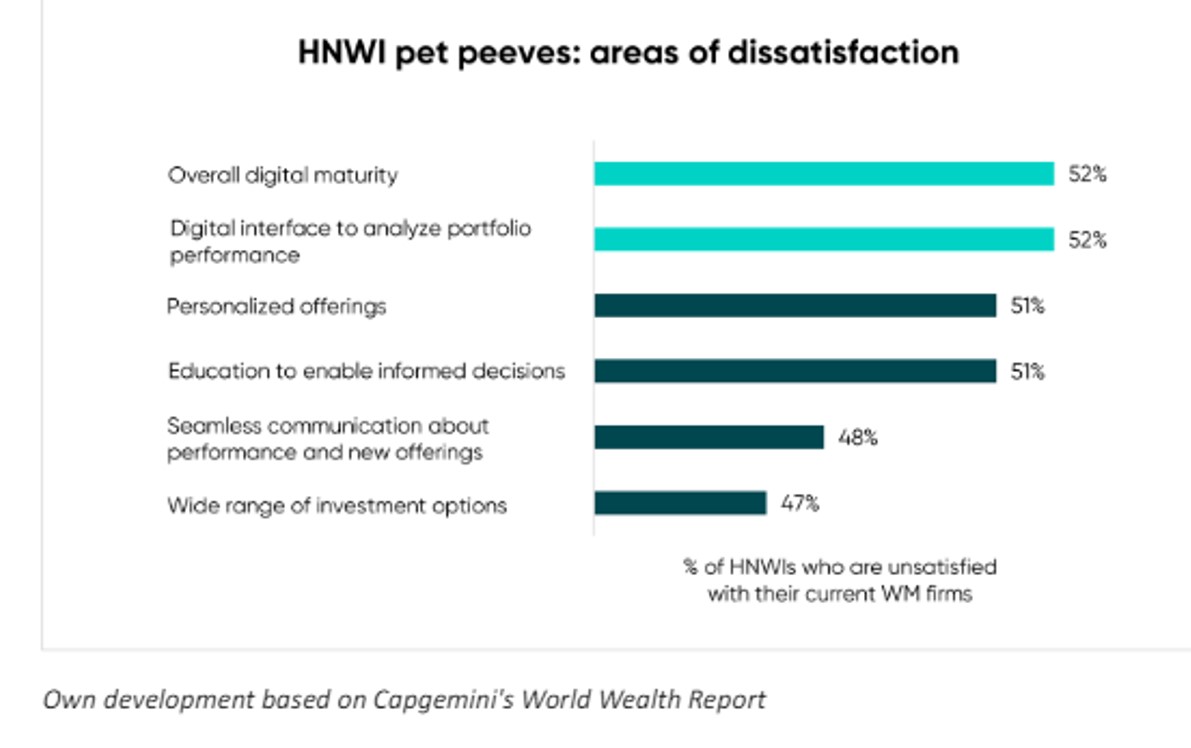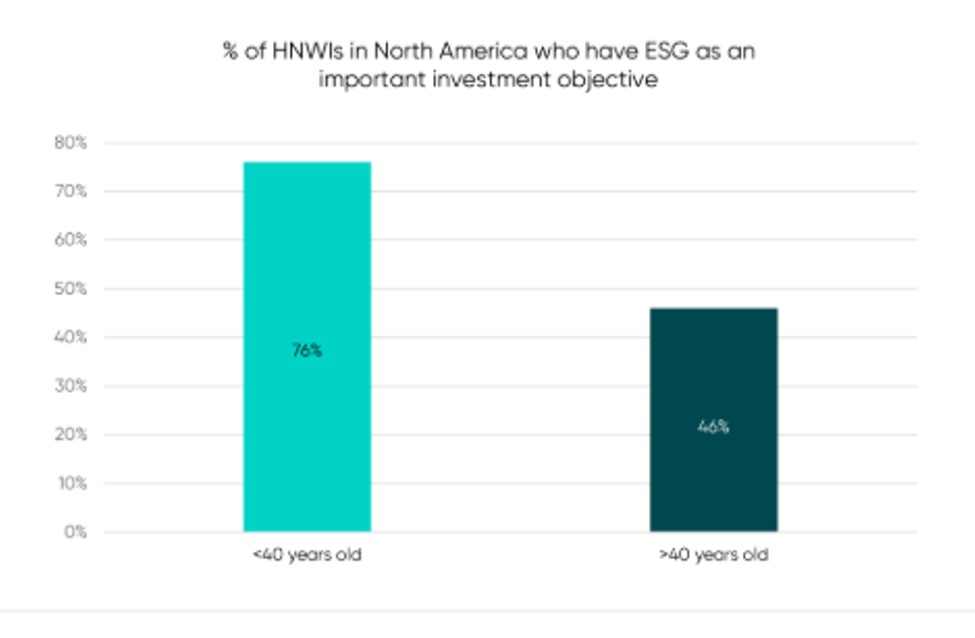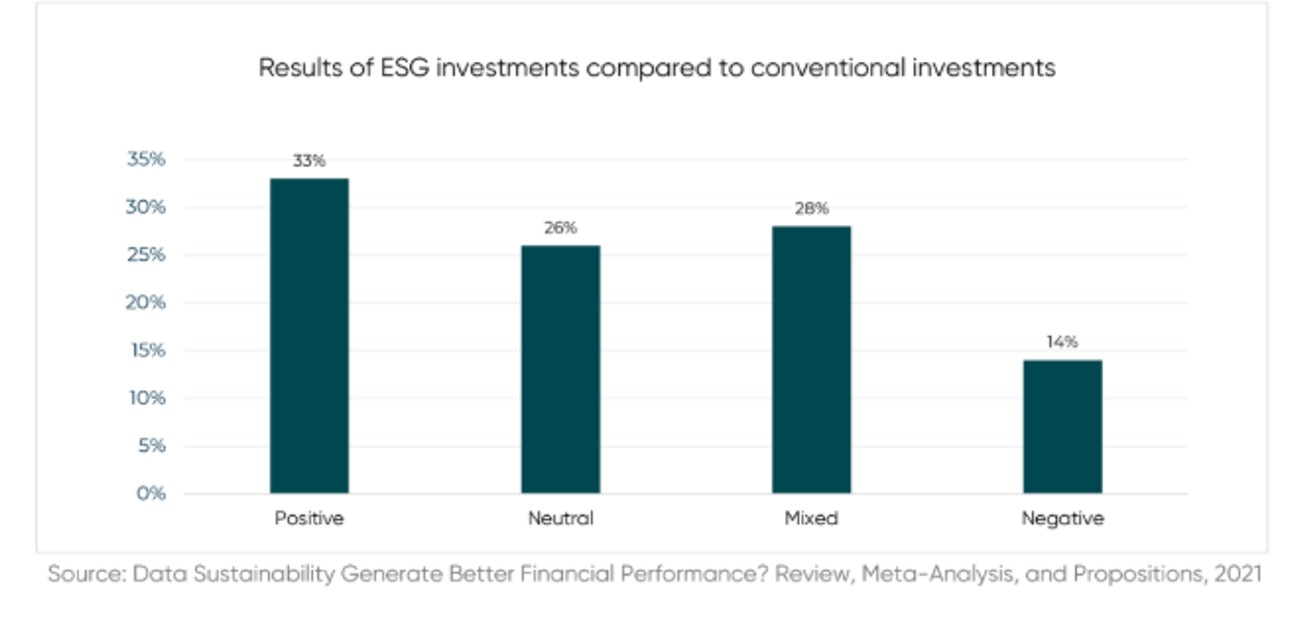Strategy
The Great Wealth Transfer: Three Trends Reshaping Wealth Management

The author of this article argues that the "Great Wealth Transfer" is not just a movement of assets from one generation to the next; it is a transformation of how these assets are managed and grown.
The following article is from Ken Gamskjaer, who is CEO and
co-founder at Aleta, a
“next-generation wealth platform” for family offices, wealth
managers, and advisors. He is based in Copenhagen,
Denmark.
The editors of this news service are pleased to share these
views; the usual editorial disclaimers apply. Jump into the
conversation! Email tom.burroughes@wealthbriefing.com
As the largest wealth transfer in history unfolds, with 30 per
cent (!) of global wealth poised to change hands in the coming
decade, the stakes for wealth managers, family offices, and
advisors have never been higher.
This transfer is reshaping the landscape of wealth management,
driven by the distinctive priorities and expectations of the next
generation of inheritors. In this article, I explore three
critical trends linked to this shift: digitalisation,
sustainability, and the evolving role of trusted advisors.
A digital ultimatum for modern wealth
management
The impending wealth transfer traces its roots back to the
post-World War II era, a time of immense growth and wealth
creation. As this wealth is due to shift to the next generation,
wealth managers find themselves at a critical juncture.
Some 90 per cent of heirs switch wealth managers after
inheriting. There are many reasons, but a significant cause is
dissatisfaction with digital maturity.
The incoming generation isn't just passively using technology;
they’re fully integrated with digital platforms that offer
personalised, immediate, and seamless experiences.
They don’t just want online portfolio access; they want the
wealth management equivalent of a Spotify playlist: personalised,
accessible anytime, anywhere and, dare I say, capable of
predicting their next favourite investment trend.
But there’s a digital divide between wealth managers and the next
generation of wealth clients, and it’s not just a gap; it's a
chasm. And for the traditional wealth manager, average age 57, it
can feel wider than the Grand Canyon.

Own development based on Capgemini's World Wealth Report
The overall digital maturity of their wealth manager is number one pet peeve among current HNW individuals along with the wealth manager’s digital interface for analysing portfolio performance.
Imagine what the numbers would look like if they represented the
next generation.
The message is crystal clear: adapt to the digital expectations
of the next generation or risk being left on "read.”
However, for those willing to embrace change, to
continuously strengthen relationships with next-gen clients, and
to choose the right technological partners, the rewards are
immense.
By teaming up with tech partners that prioritise these next-gen
expectations, wealth managers will be making a strategic move
towards securing a firm position in the future of wealth
management, where digital fluency and innovation are at the
forefront.
A launch pad for sustainable investment
When I meet “next gens,” one of the things they’re most
preoccupied with is identity. Their predecessors largely built
their identity on their business. But the next generation is
inheriting a fortune they didn’t create themselves, and now they
have to figure out what they want to build their own identity
on.
What’s common for many of them is that they want to create a
long-lasting legacy that’s about more than profit.
Because they’re not just inheriting wealth; they're also
inheriting a responsibility towards the planet and are keen to
ensure that their investments reflect their ethical stances. They
are diverting from traditional paths and looking towards
investments that promise not only financial returns but also
contribute positively to environmental and social outcomes.
In North America, Millennial HNW individuals show a marked
preference for ESG investing compared with individuals over
40, highlighting a generational shift in investment
paradigms.

Own development based on Capgemini's World Wealth Report
In my opinion, it’s not one or the other. I believe that profit
and purpose will go hand in hand in the future because companies
have to adjust to the reality we live in to thrive in the long
term. In fact, studies indicate that this is already reality in
many cases.
In a meta-study, NYU Stern Center for Sustainable Business and
Rockefeller Asset Management analysed over 1,000 studies. Among
the studies focusing on the relationship between sustainability
and performance, 59 per cent indicate that ESG investments yield
similar or better results than conventional investment
approaches.

Source: Data Sustainability Generate Better Financial
Performance? Review, Meta-Analysis, and Propositions,
2021
However, integrating sustainability into wealth management is not without its challenges. Approximately 40 per cent of wealth managers report that obtaining accurate ESG impact data is a complex task.
Admittedly, it’s not easy to navigate the ESG data jungle, and it
is often grey-on-grey, but that doesn’t mean we shouldn’t take on
the challenge.
But it’s not only about reporting. Wealth managers must deepen
their understanding of sustainable investment opportunities. They
must become as fluent in discussing carbon footprints and social
equity as they are in discussing bonds and equities.
The way I see it, one of the ways to make that happen is to
ensure that sustainability becomes an integral part of financial
education. People in the financial world need to learn from the
very beginning that risk and return are not the only important
parameters to look at.
Rise of the trusted advisor and holistic
advisory
Despite the rise of technology, the importance of the human
element remains paramount.
This becomes clear when looking at the increasing demand for
trusted advisors which is especially driven by increasing levels
of fragmentation and standardisation in the world of wealth
management.
Many HNW individuals experience an increasing degree of
standardisation in private banking. They feel lost in the crowd
of clients, receiving cookie-cutter solutions that fail to
address their unique needs and aspirations.
As a response, they’re moving away from private banking.
At the same time, the wealth universe of HNW individuals today is
becoming more and more fragmented and in more than one sense.
First of all, investments are spread across various asset
classes, both liquid and illiquid, and distributed globally. On
top of that, they’re dispersed between multiple wealth managers,
each specialising in different segments of the financial
market.
It’s becoming more and more difficult and time-consuming for HNW
individuals to stay on top of this fragmented wealth
universe.
As a result of these developments, HNW individuals are looking
for trusted advisors who can act as a single point of entry to
the entire wealth ecosystem and provide them with highly
personalised and holistic wealth management solutions.
And they expect them to look beyond classic asset classes and
assume a broader and more holistic look on wealth – a perspective
they expect to see reflected in their wealth management
platforms. Advisors are becoming partners in building a
legacy that aligns with the personal and social values of their
clients.
Conclusion
The Great Wealth Transfer is not just a movement of assets from
one generation to the next; it is a transformation in how these
assets are managed and grown. For wealth managers, this era
presents an opportunity to redefine their roles and services to
align with a digitally savvy, ethically conscious, and highly
personalised approach to wealth management.
By embracing digital innovation, prioritising sustainability, and
reinforcing the role of trusted advisors, wealth managers can
meet the high expectations of the next generation. Successfully
navigating this transition will require a blend of innovation,
adaptability, and a deep commitment to client relationships. In
doing so, wealth managers can ensure that their services are not
only preserved but are propelled into a future where they are
more relevant and responsive than ever.
Sources
Atz, U. et al. (2022): Does Sustainability Generate Better
Financial Performance? Review, Meta-analysis, and
Propositions.
Campden Wealth: The North America Family Office Report.
Capgemini: World Wealth Report.
Deloitte: 10 Disruptive trends in wealth management.
UBS: Global Family Office Report.
&Simple: Simple Software Technology Review.
&Simple: Simple Looking Forward